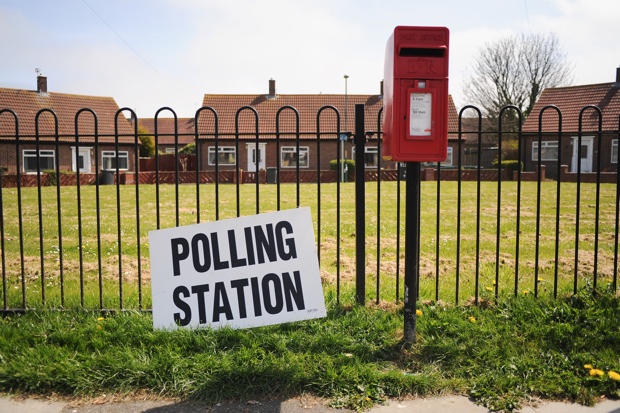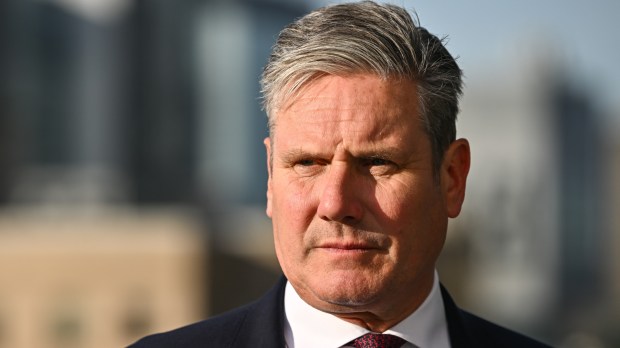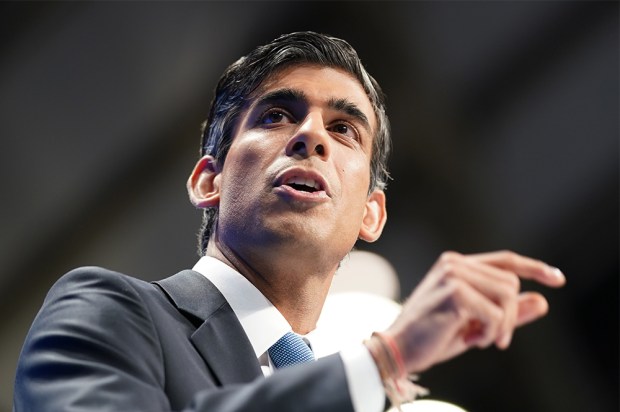In one sense David Cameron is lucky that the Conservatives do not enter 2014 with a lead in the polls. If they did, the Prime Minister would be under pressure for stitching up the Fixed Term Parliaments Act with Nick Clegg, thereby denying himself the chance of doing what all strong governments have done over the past 35 years, with unfailing success: going to the country after four years. Barring a vote of no confidence, we already know the date of the next election: 7 May 2015.
With the exception of John Major in 1992, no Prime Minister who waited five years has won re-election since Clement Attlee in 1950 — and he only clung to power with a miserable five-seat majority. David Cameron not only has to overcome this jinx; he must also start from a much poorer position than previous prime ministers, having failed to win an outright majority last time around.
The coalition begins this year with every reason to cheer. The triple-dip recession on which Ed Balls bet his credibility never happened; neither, after statistical revision, did the second dip. Moreover, the UK economy is growing faster than that of any other major industrial power.
No one should be fooled into thinking, however, that this will necessarily translate into a Tory advantage at the ballot box. Cameron and those who surround him often behave as if they will be swept back into power without much effort. But complacency cost them the last election. And as in 1997, it may be the opposition party that benefits from good times. Then, Britain was enjoying arguably its most benign phase of the past century: the economy was growing but not on the back of excessive debt; stock markets and house prices were rising, but not in the mad way which was to follow. The public finances were close to surplus. The Conservatives, however, drew no benefit. Rather, the health of the economy neutralised it as an electoral issue. Voters knew that Labour had a poor record with the public finances but felt safe to vote for the party because they sensed no imminent danger. There is a real risk that wavering voters will say: yes, we needed the Conservatives and their tight-fisted housekeeping in 2010, but now surely we can afford all the attractive things Labour is offering.
It is hard to see that the linked issues of Europe and immigration offer the Conservatives a guaranteed route to re-election, either, even though Labour has found itself on the wrong side of these debates. Everyone bar a small minority of left-wing opinion can see that it is madness that Eastern European migrants are eligible for benefits in Britain without ever having worked or paid taxes here. But as in 2001 and 2005, concentrating on this issue would allow Labour to portray the Conservatives as negative. Moreover, make Europe and immigration the main issues of the election and the Conservatives will find themselves driving their voters into Ukip’s arms.
If not the economy, Europe or immigration, then what could win the Conservatives an election? There is no longer any great divide in British politics between capitalism and socialism, but there is a more subtle divide — one which Roger Scruton identifies on page 18 of this issue, over the extent to which the state should involve itself in the lives of citizens.
One of the lessons of the past 30 years is that the Conservatives are at their strongest when they are seen to stand up for people seeking to take control of their destiny. When they do that, they win voters directly from Labour. Look at the sale of council housing in the 1980s, which created a new Conservative constituency in places where few would previously have imagined one. The policy was not only attractive in itself; it also showed Labour in an unappealing light, with councillors trying to cling on to their empires.
The government has tried to revive the right to buy by increasing discounts, but it no longer has the power it once did. Property prices are so high now that in many parts of the country purchase is only an option for well-off tenants: the sort who should not be in social housing in the first place. The maximum discount now on offer — £75,000 — raises accusations of selling public assets on the cheap.
It is on free schools that the current government has created its most imaginative policy. Permitting the creation of new free schools plays to the interests of pupils and teachers who for years have had to put up with the dogmatic and complacent control of schools by local authorities. It does so without being a clumsy privatisation and by obliging operators of free schools to prove their product by competing with schools which remain under council control. The beneficiaries are not the privileged but in many cases children of Labour-voting families. Look how it won over Peter Hyman, former adviser to Tony Blair and now proud headmaster of a free school.
Free schools have yet not touched every corner of the country as the right to buy did in the 1980s, but they have demonstrated that Conservatism and conservative ideas can win Labour votes by putting people, rather than authorities, in charge. If David Cameron is to win next May, he needs many more ideas along these lines.
Got something to add? Join the discussion and comment below.
Get 10 issues for just $10
Subscribe to The Spectator Australia today for the next 10 magazine issues, plus full online access, for just $10.
You might disagree with half of it, but you’ll enjoy reading all of it. Try your first month for free, then just $2 a week for the remainder of your first year.














Comments
Don't miss out
Join the conversation with other Spectator Australia readers. Subscribe to leave a comment.
SUBSCRIBEAlready a subscriber? Log in